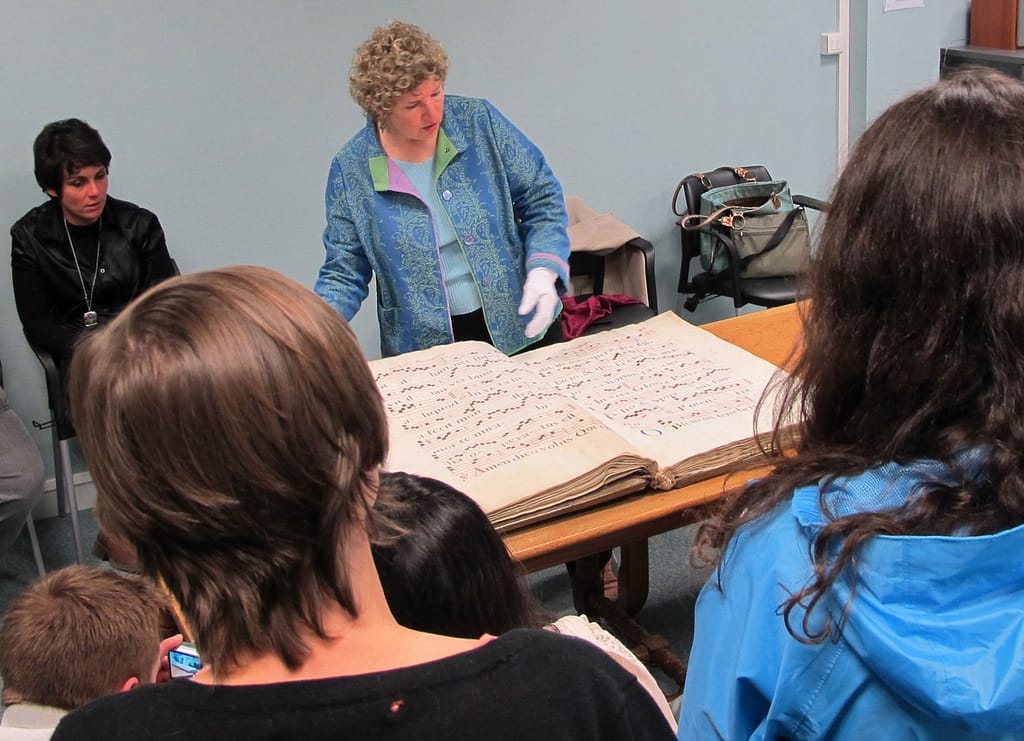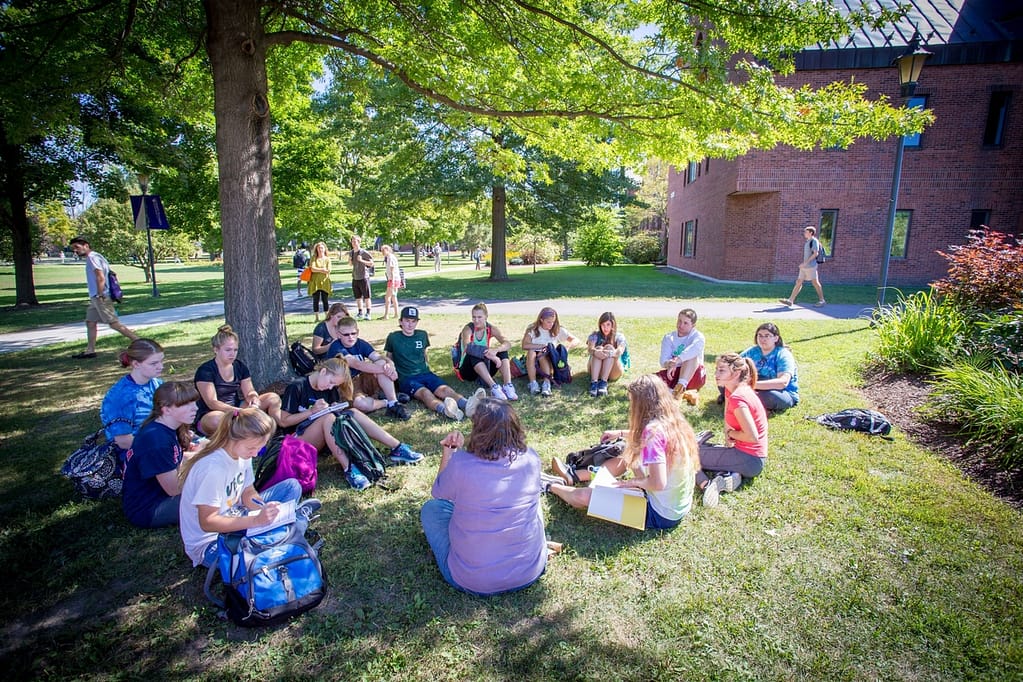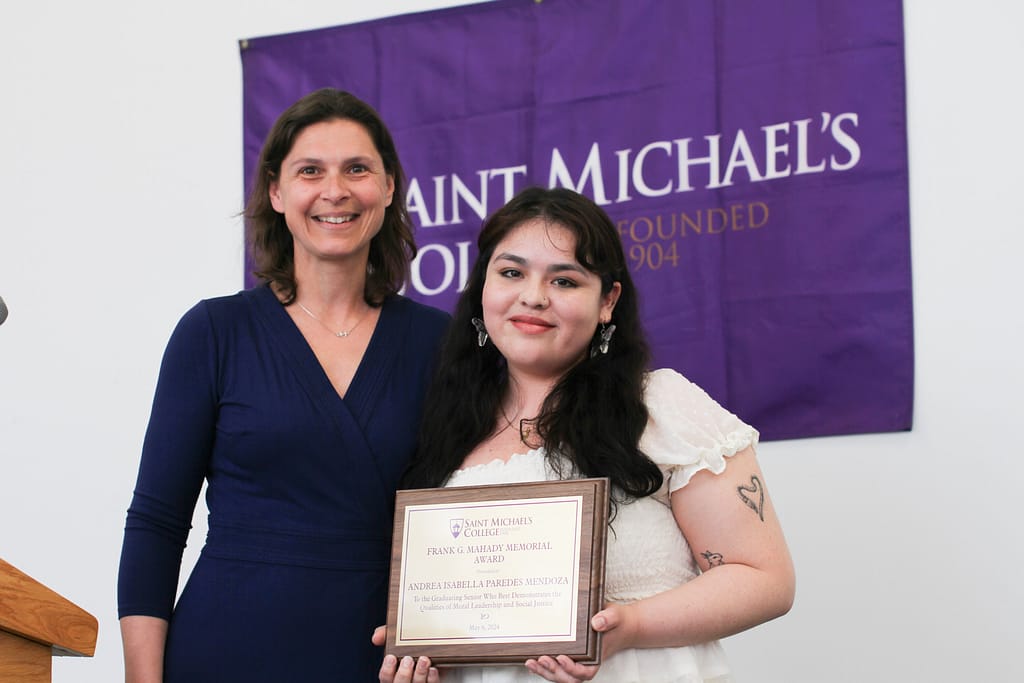About
The Medieval Studies minor is an interdisciplinary program that offers students the opportunity to explore the development of medieval culture and society in Europe, West Asia, and North Africa from the fifth through the fifteenth centuries. Much of the modern world, from the political and economic to the arts, is rooted in (and better understood by) studying medieval society. Guided by personal interests, students can draw on courses from Classics, History, English, Fine Arts, Religious Studies, Modern Languages, and Philosophy to fulfill the Medieval Studies minor. In fact, many students who declare a minor in Medieval Studies also major or double-major in an area such as History, Education, or Religious Studies.
In Depth
The introductory course in History surveys the medieval history of Europe, Islam, and Byzantium from the fifth through the fifteenth century (from the collapse of the Roman Empire to the rise of the Ottoman Empire), and it emphasizes the study of primary sources. The Humanities introductory course takes a chronological yet interdisciplinary approach to the study of significant texts from Antiquity and the Middle Ages, emphasizing the Western tradition but not excluding the non-Western. Readings in this course may include Plato’s Virgil’s Aeneid, Saint Augustine’s Confessions, the Rule of Saint Benedict, the Lays of Marie de France, an Arthurian romance, and Dante’s Inferno.
The array of Religious Studies courses, introductory as well as upper level, acquaint the student with the origins and development of medieval Christianity, Judaism, and Islam. The electives in other disciplines from which students may choose to fulfill the minor leave wide room for the student’s own particular interests. Choices may include courses in Greek and Latin, British and Old English literature, art history, the history of drama, philosophy, religious studies, and music. Students may choose to focus on one particular geographical area in particular, such as Spain, France, Italy, or Syria. An 18-day study-abroad course in Burgundy, France, is a popular choice for students in this minor.
Special Opportunities
Students may choose to take an 18-day academic study tour course in Burgundy, France. It emphasizes the historical, political, artistic, religious, literary, cultural, and social developments of medieval Burgundy. Based in Pontigny, a striking site from where Saint Michael’s College draws its roots, students travel to cities, abbeys, castles, cathedrals, museums, and archaeological sites. This counts as a full course and offers an optional applied language component. An additional academic study tour to Assisi, Italy is currently under development for the future.
Students may choose to complete their minor with a major research paper in a particular area of interest to them. They can do this within the format of a senior seminar of an existing major, such as History or English or Religious Studies. Student-faculty research grants in the summer are also available for Medieval Studies minors. For example, one summer a student worked with a faculty member to explore the vexed relations between Christians and Jews in the European Middle Ages.
Careers
The minor emphasizes critical and intensive thinking, writing, and speaking about primary sources that date from the medieval past. These are skills that translate well into any major profession, whether it is in diplomacy, law, academia, or business. Medieval Studies minors have gone into a variety of professions, including teaching, law, and public history. It has also helped provide a strong academic preparation for students who have gone on to pursue graduate degrees in a variety of subjects.
In Depth
The introductory course in History surveys the medieval history of Europe, Islam, and Byzantium from the fifth through the fifteenth century (from the collapse of the Roman Empire to the rise of the Ottoman Empire), and it emphasizes the study of primary sources. The Humanities introductory course takes a chronological yet interdisciplinary approach to the study of significant texts from Antiquity and the Middle Ages, emphasizing the Western tradition but not excluding the non-Western. Readings in this course may include Plato’s Virgil’s Aeneid, Saint Augustine’s Confessions, the Rule of Saint Benedict, the Lays of Marie de France, an Arthurian romance, and Dante’s Inferno.
The array of Religious Studies courses, introductory as well as upper level, acquaint the student with the origins and development of medieval Christianity, Judaism, and Islam. The electives in other disciplines from which students may choose to fulfill the minor leave wide room for the student’s own particular interests. Choices may include courses in Greek and Latin, British and Old English literature, art history, the history of drama, philosophy, religious studies, and music. Students may choose to focus on one particular geographical area in particular, such as Spain, France, Italy, or Syria. An 18-day study-abroad course in Burgundy, France, is a popular choice for students in this minor.
Special Opportunities
Students may choose to take an 18-day academic study tour course in Burgundy, France. It emphasizes the historical, political, artistic, religious, literary, cultural, and social developments of medieval Burgundy. Based in Pontigny, a striking site from where Saint Michael’s College draws its roots, students travel to cities, abbeys, castles, cathedrals, museums, and archaeological sites. This counts as a full course and offers an optional applied language component. An additional academic study tour to Assisi, Italy is currently under development for the future.
Students may choose to complete their minor with a major research paper in a particular area of interest to them. They can do this within the format of a senior seminar of an existing major, such as History or English or Religious Studies. Student-faculty research grants in the summer are also available for Medieval Studies minors. For example, one summer a student worked with a faculty member to explore the vexed relations between Christians and Jews in the European Middle Ages.
Careers
The minor emphasizes critical and intensive thinking, writing, and speaking about primary sources that date from the medieval past. These are skills that translate well into any major profession, whether it is in diplomacy, law, academia, or business. Medieval Studies minors have gone into a variety of professions, including teaching, law, and public history. It has also helped provide a strong academic preparation for students who have gone on to pursue graduate degrees in a variety of subjects.




